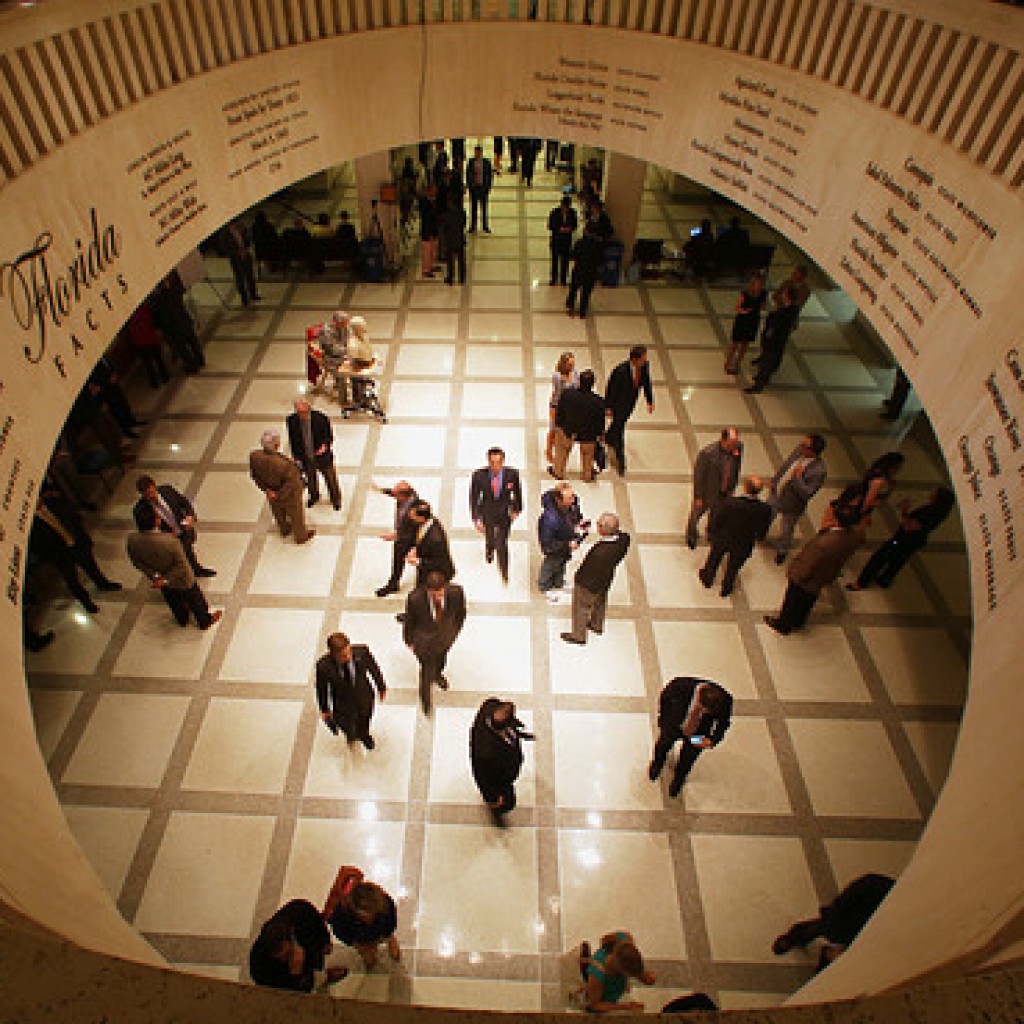
Fifteen legislative lobbying firms and 12 executive-branch lobbying firms were randomly selected Thursday for audits of their 2015 compensation reports.
This is the second time under a 2005 state law that lobbying firms were subject to random audits. Lawmakers required that 3 percent of firms registered to lobby in the state would be picked at random.
Here is the list of legislative firms, in the order they were picked:
- C.B. Myers III
- Cerra Consulting
- David A. Konuch
- DLA Consulting
- Akerman LLP
- Avera & Smith
- Topsail Public Affairs
- Becker & Poliakoff
- The Mathis Group
- Gate Way Group
- The Mitchell Group
- Mark Hendrickson
- Sustainable Beaches
- Curva and Associates
- Acclaim Strategies
A list of alternates also was selected:
- Lawrence A. Gonzalez
- Danielle Alexandre
- Applied Aquaculture
- Elisabeth Kiel Consulting
- The Commerce Group
- Harrison Rivard Duncan & Buzzett, Chartered
- Asztalos and Associates
- Horton and Associates
- Bascom Communications and Consulting
- Civility Management
- Carr Allison
- Mike Rogers
- Robert R. Reynolds & Associates
- Technology Advocates
- Uhlfelder & Associates
Here is the list of executive-branch firms, in the order they were picked:
- Frank Meiners Governmental Consultants
- Brenda Dickinson
- Young van Assenderp & Qualls
- Singleton Consulting
- M&G Investment Management, Ltd.
- Johnson Strategies
- Capitol Group Inc.
- Sayfie Law Firm
- Shutts and Bowen
- Kathy Till & Associates
- DDarling Consulting
- The Commerce Group
And the alternates:
- The Labrador Co.
- Boscan & Associates
- Alcalde & Fay
- Capitol Solutions
- Peebles & Smith
- Kirk Consulting Group
- Rayborn Consultants
- Safley Group
- Paul A. Zeigler
- Strategic Access Group
- ML Bowen Advisors
- Carr Allison
State law requires quarterly reports of money taken in, but only mandates disclosure of general ranges, not exact amounts. It also doesn’t require a breakdown of how much individual clients paid.
It was part of an overall “gift ban” package, banning registered lobbyists from plying lawmakers with meals, booze or anything else of value.
Critics have said reporting income causes a kind of competition between lobbying houses, in which making more money is seen as a measure of better lobbying.
A measure was floated earlier this year with language to repeal the audit requirement; that language was later removed.
Audits are scheduled to begin on or after May 1. More than $200 million a year is spent trying to influence state policy creation, according to estimates.



